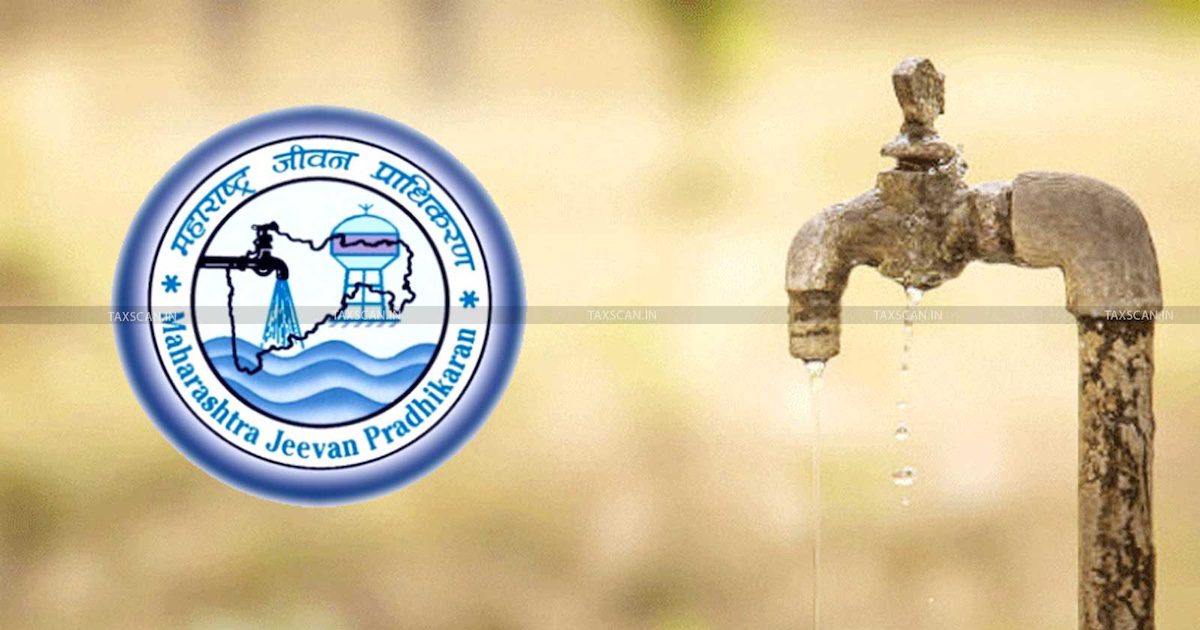In a landmark decision that significantly impacts Maharashtra’s water infrastructure development, the Authority for Advance Ruling (AAR) has declared that Jal Jeevan Mission projects in the state will attract nil Goods and Services Tax (GST). This ruling marks a crucial development for the Maharashtra Jeevan Pradhikaran (MJP) and its ongoing efforts to ensure universal access to clean drinking water across the state.
Table of Contents
Understanding the AAR Ruling on GST Exemption
The AAR’s decision is a response to applications filed by the Maharashtra Jeevan Pradhikaran, seeking clarity on the GST implications for their water supply schemes. The ruling specifically addresses projects under the Jal Jeevan Mission, a central government initiative aimed at providing tap water connections to every rural household by 2024.
Key Points of the Ruling:
- Complete GST exemption for water supply projects
- Applicable to both new installations and maintenance work
- Covers rural and urban water supply schemes
- Includes related infrastructure development
Source- Sag Infotech Blog on AAR Nil GST Ruling
Financial Impact on Maharashtra’s Water Projects
The nil GST ruling is expected to generate substantial cost savings for the state government and implementing agencies. According to preliminary estimates:
- Project Cost Reduction:
- Average project cost reduction: 18%
- Annual savings potential: ₹500-700 crores
- Increased project implementation capacity
- Budget Allocation Benefits:
- More efficient fund utilization
- Enhanced scope for additional projects
- Improved financial planning capabilities
Implementation Framework and Scope
The Maharashtra Jeevan Pradhikaran has outlined a comprehensive framework for implementing projects under this GST-exempt status.
Water Supply Infrastructure:
- Pipeline networks
- Water treatment plants
- Storage facilities
- Distribution systems
- Pumping stations
Maintenance Activities:
- Regular system upgrades
- Emergency repairs
- Technical improvements
- Quality control measures
Impact on Rural Development
The nil GST ruling particularly benefits rural areas, where water infrastructure development is crucial.
- Rural Coverage Enhancement:
- Target: 100% household tap connections
- Current coverage: approximately 65%
- Expected completion timeline: 2024
- Community Benefits:
- Reduced water collection time
- Improved health outcomes
- Enhanced agricultural support
- Economic development opportunities
Technical Aspects and Compliance
To ensure proper implementation of the GST exemption, the following technical considerations are important:
- Documentation Requirements:
- Project certification
- Implementation plans
- Budget allocations
- Progress reports
- Quality assurance documents
- Compliance Measures:
- Regular audits
- Performance monitoring
- Financial tracking
- Regulatory adherence
Economic Implications for Maharashtra
The GST exemption creates significant economic advantages:
- Direct Financial Benefits:
- Reduced project costs
- Improved budget utilization
- Enhanced infrastructure development
- Increased project scope
- Indirect Economic Impact:
- Job creation
- Local business growth
- Improved public health
- Enhanced agricultural productivity
Future Prospects and Development Plans
The Maharashtra government has outlined ambitious plans leveraging this GST benefit.
- Short-term Goals (1-2 years):
- Complete ongoing projects
- Initiate new water supply schemes
- Upgrade existing infrastructure
- Enhance maintenance programs
- Long-term Vision (3-5 years):
- Achieve universal water access
- Develop sustainable water systems
- Implement smart water management
- Ensure water security
Stakeholder Engagement and Implementation
Successful implementation requires coordinated efforts from various stakeholders:
- Government Agencies:
- Maharashtra Jeevan Pradhikaran
- Local administrative bodies
- Technical departments
- Financial institutions
- Community Participation:
- Local water committees
- Gram panchayats
- Resident associations
- NGO partnerships
Quality Assurance and Monitoring
To maintain high standards, robust monitoring mechanisms are essential.
- Quality Parameters:
- Water quality standards
- Infrastructure durability
- Service reliability
- Maintenance efficiency
- Monitoring Systems:
- Real-time data collection
- Performance analytics
- Impact assessment
- Feedback mechanisms
Environmental Considerations
The GST exemption also supports environmental sustainability:
- Environmental Benefits:
- Reduced groundwater exploitation
- Better water conservation
- Improved watershed management
- Sustainable resource utilization
Conclusion
The AAR’s ruling on nil GST for Maharashtra’s Jal Jeevan Mission projects represents a significant step forward in the state’s water infrastructure development. This decision not only reduces project costs but also accelerates the achievement of universal water access goals. The financial benefits, combined with improved implementation capabilities, position Maharashtra to make substantial progress in water supply infrastructure development.
The success of this initiative will depend on effective coordination between government agencies, efficient project implementation, and strong community participation. As the state moves forward with its ambitious water supply plans, the GST exemption provides a crucial financial advantage that can help transform Maharashtra’s water infrastructure landscape.
This development marks a positive step toward achieving the broader goals of the Jal Jeevan Mission while ensuring sustainable and equitable water access for all Maharashtra residents. The coming years will be crucial in demonstrating the full impact of this GST exemption on the state’s water infrastructure development and public welfare.

Chirag Sachdeva is a seasoned digital marketing expert with over 15 years of experience spanning digital strategy, content management, and SEO. Chirag is the founder of Digifly Technology, where he empowers businesses to grow through innovative digital solutions. With a deep understanding of content strategy and market trends.




